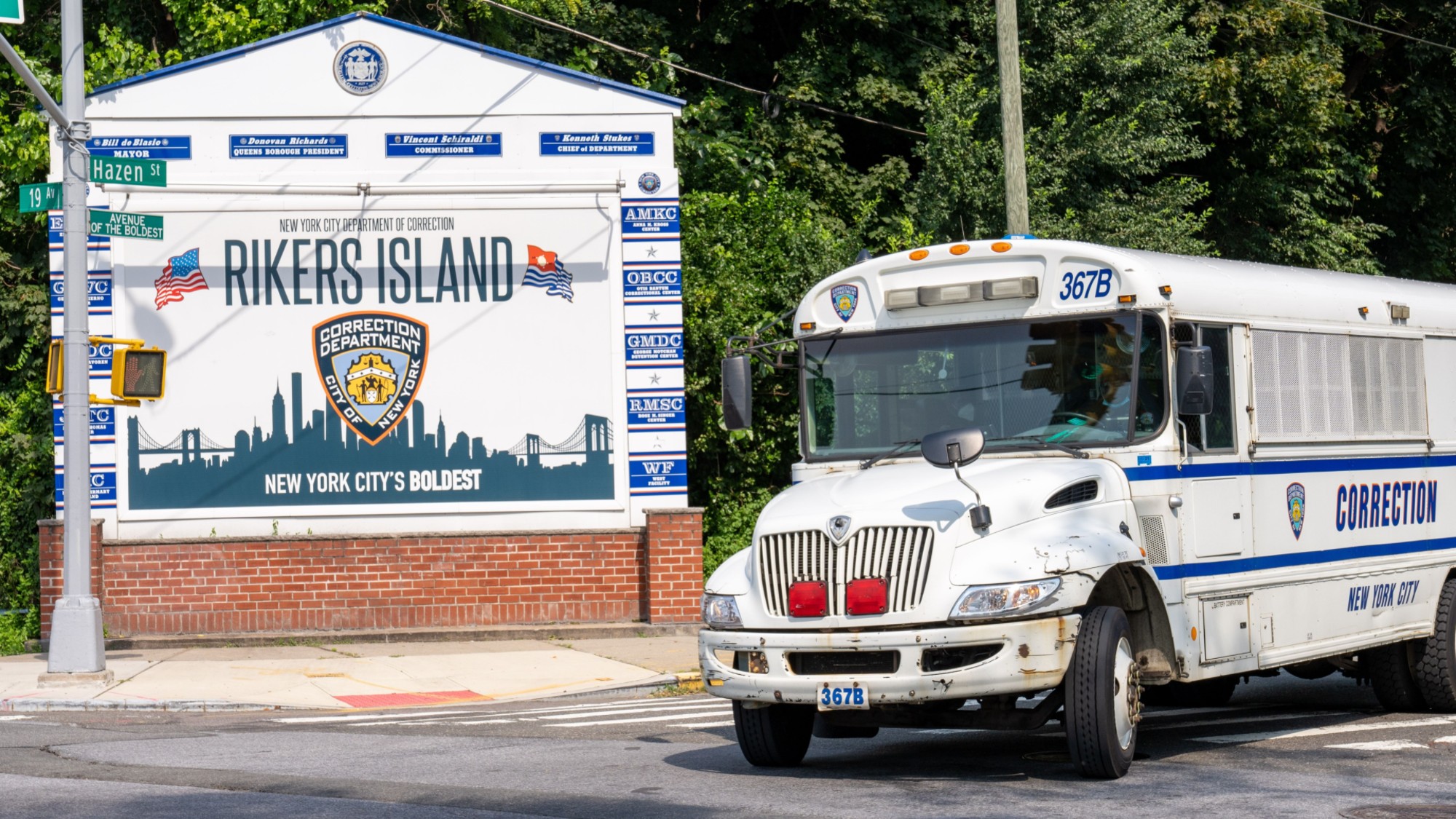What are IPP sentences?
Thousands of prisoners remain incarcerated with no fixed date of release

A free daily email with the biggest news stories of the day – and the best features from TheWeek.com
You are now subscribed
Your newsletter sign-up was successful
The Labour Party has refused to back a proposal that would help prisoners end potentially unjust indeterminate prison sentences.
The House of Lords has been debating amendments to the Victims and Prisoners Bill, including changes to imprisonment for public protection (IPP) sentences – open-ended jail terms that have a minimum but no maximum length. Labour was originally thought to be backing amendments that would make it easier for prisoners to gain release on parole but subsequently chose to abstain from the vote. Campaigners are now accusing "the opposition of a u-turn", said Jon Robins at The Justice Gap.
Though IPPs are no longer used, they were not abolished retrospectively and so thousands of prisoners remain incarcerated with no fixed date of release. This is "inhumane" and amounts to "psychological torture", UN expert Alice Jill Edwards told Sky News.
The Week
Escape your echo chamber. Get the facts behind the news, plus analysis from multiple perspectives.

Sign up for The Week's Free Newsletters
From our morning news briefing to a weekly Good News Newsletter, get the best of The Week delivered directly to your inbox.
From our morning news briefing to a weekly Good News Newsletter, get the best of The Week delivered directly to your inbox.
What are IPPs?
IPPs were introduced by the New Labour government in 2003 as part of the Criminal Justice Act. The idea was to allow authorities to continue to detain criminals whose crimes did not warrant a life term but continued to pose a serious threat to the public. Release would only be secured when a prisoner showed they had "reformed their character", said Sky News.
For New Labour "law and order was a central theme" and IPPs were a demonstration that it could be "just as muscular on issues of justice as the Conservatives", said The Guardian.
More than 8,700 people were handed IPPs and more than 2,800 people are still serving an indeterminate sentence. That's despite the idea being abolished in 2012 after the European Court of Human Rights described it as "arbitrary and therefore unlawful", as there was no retrospective removal of IPPs for those already sentenced.
Why are they so controversial?
The key problem with IPPs is that many prisoners are being indefinitely detained long after their minimum sentence, often for minor criminal offences. More than 700 people have "served more than 10 years longer" than their minimum sentence, said The Independent, some for offences like stealing a bike or a mobile phone that normally carry much shorter custodial sentences.
A free daily email with the biggest news stories of the day – and the best features from TheWeek.com
Campaigners now say it is a "matter of life and death" for inmates "trapped" by these sentences with almost 90 IPP prisoners dying by suicide.
Additionally, it is extremely difficult for prisoners to secure parole release, with the current system putting the "burden of proof" on the prisoner to show why they are no longer a threat to society rather than a parole board having to justify detaining them for an indefinite sentence, said Robins. Prisoners were also being denied access to "mandatory rehabilitation courses", which would be needed to secure parole, creating an impossible situation for many inmates, said Sky News.
Even if a prisoner did secure release, they were "on licence for 99 years and could be recalled back to prison for virtually any reason" by the Parole Board, said The Guardian.
Why are they in the news?
Families of IPP prisoners and campaigners have long pushed for the government to "reverse" the Parole Board release test, said Robins, essentially putting the onus on the authorities to prove why a prisoner should be held.
That is the crux of the ‘Simon Brown Memorial Amendment’ – named after the late judge who said IPPs were the "single greatest stain on the justice system". This was put forward in the House of Lords and campaigners say it would lead "to much fairer release decisions for thousands" of prisoners.
But the amendment is doomed to fail now that Labour has chosen to abstain, while the government has "so far refused to resentence IPP prisoners", said The Independent.
There continues to be a "lack of political will" to address the issue, despite "overwhelming evidence the sentence is flawed", the paper added.
-
 ‘Restaurateurs have become millionaires’
‘Restaurateurs have become millionaires’Instant Opinion Opinion, comment and editorials of the day
-
 Earth is rapidly approaching a ‘hothouse’ trajectory of warming
Earth is rapidly approaching a ‘hothouse’ trajectory of warmingThe explainer It may become impossible to fix
-
 Health insurance: Premiums soar as ACA subsidies end
Health insurance: Premiums soar as ACA subsidies endFeature 1.4 million people have dropped coverage
-
 Executions are on the rise in the US after years of decline
Executions are on the rise in the US after years of declineThe Explainer This year has brought the highest number of executions in a decade
-
 Trump lambasts crime, but his administration is cutting gun violence prevention
Trump lambasts crime, but his administration is cutting gun violence preventionThe Explainer The DOJ has canceled at least $500 million in public safety grants
-
 Insects and sewer water: the alleged conditions at 'Alligator Alcatraz'
Insects and sewer water: the alleged conditions at 'Alligator Alcatraz'The Explainer Hundreds of immigrants with no criminal charges in the United States are being held at the Florida facility
-
 Why Rikers Island will no longer be under New York City's control
Why Rikers Island will no longer be under New York City's controlThe Explainer A 'remediation manager' has been appointed to run the infamous jail
-
 Narco subs are helping to fuel a global cocaine surge
Narco subs are helping to fuel a global cocaine surgeThe Explainer Drug smugglers are increasingly relying on underwater travel to hide from law enforcement
-
 Alcatraz: America's most infamous prison
Alcatraz: America's most infamous prisonThe Explainer Donald Trump wants to re-open notorious 'escape-proof' jail for 'most ruthless and violent prisoners' in the US
-
 Italy's prisons crisis
Italy's prisons crisisUnder the Radar Severe overcrowding, dire conditions and appalling violence have brought the Italian carceral system to boiling point
-
 How people-smuggling gangs work
How people-smuggling gangs workThe Explainer The Government has promised to 'smash' the gangs that smuggle migrants across the Channel. Who are they and how do they work?